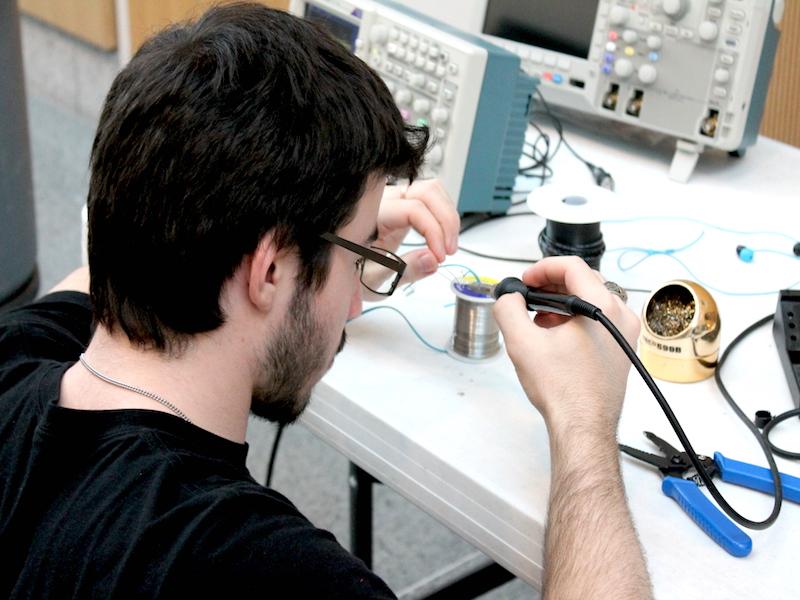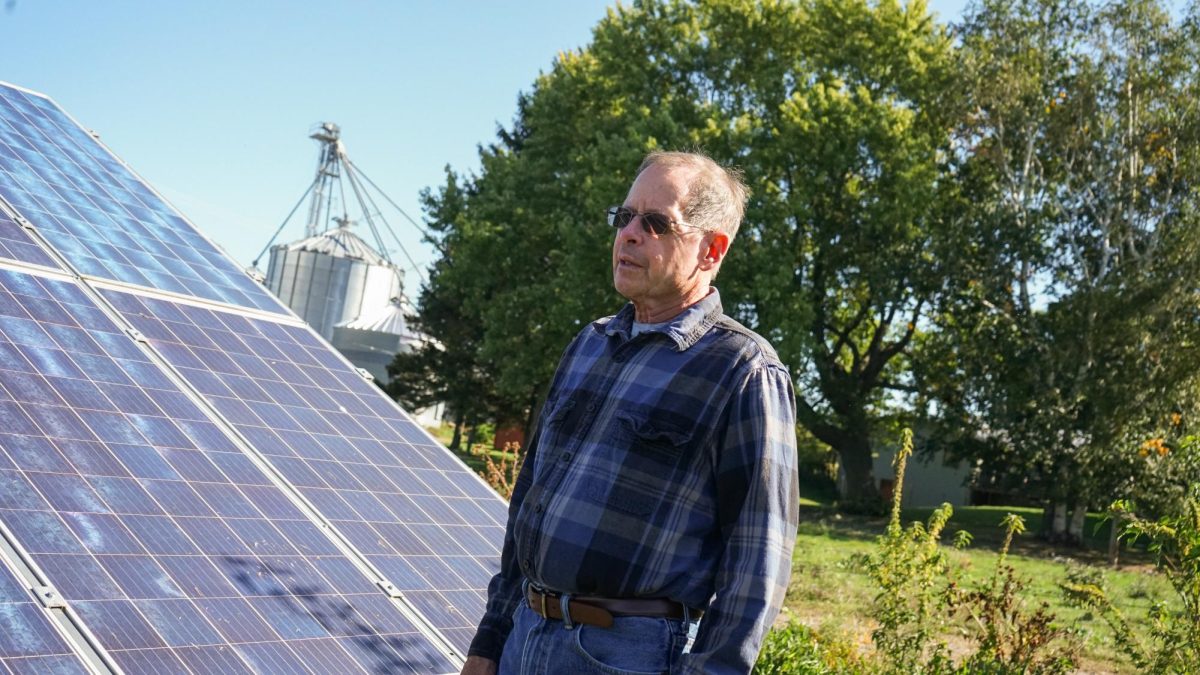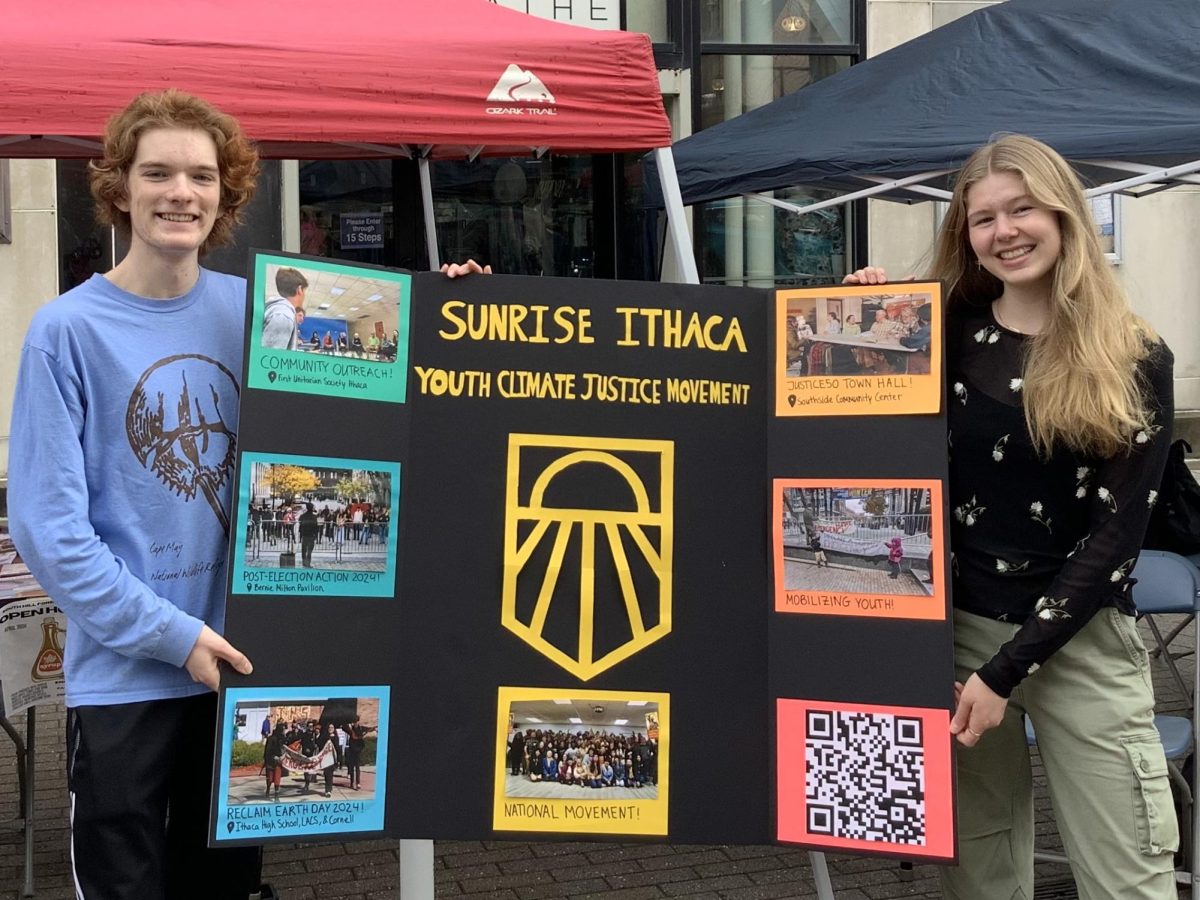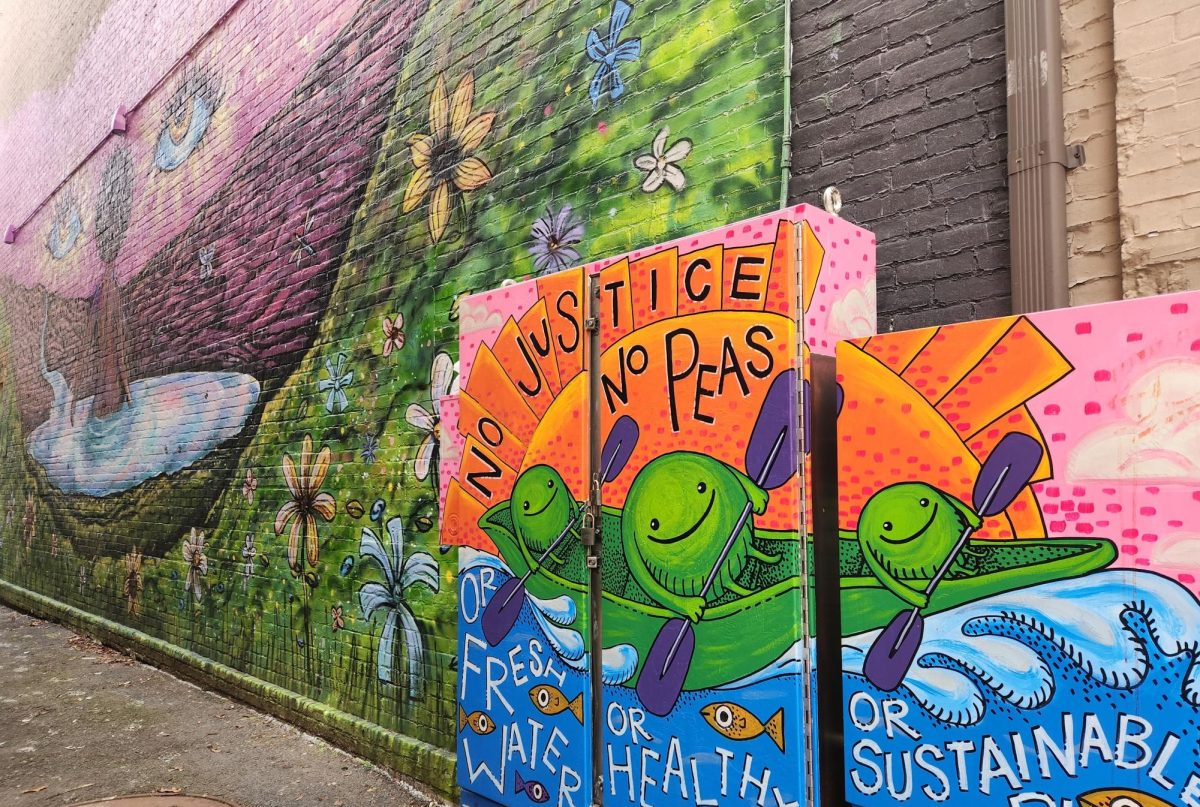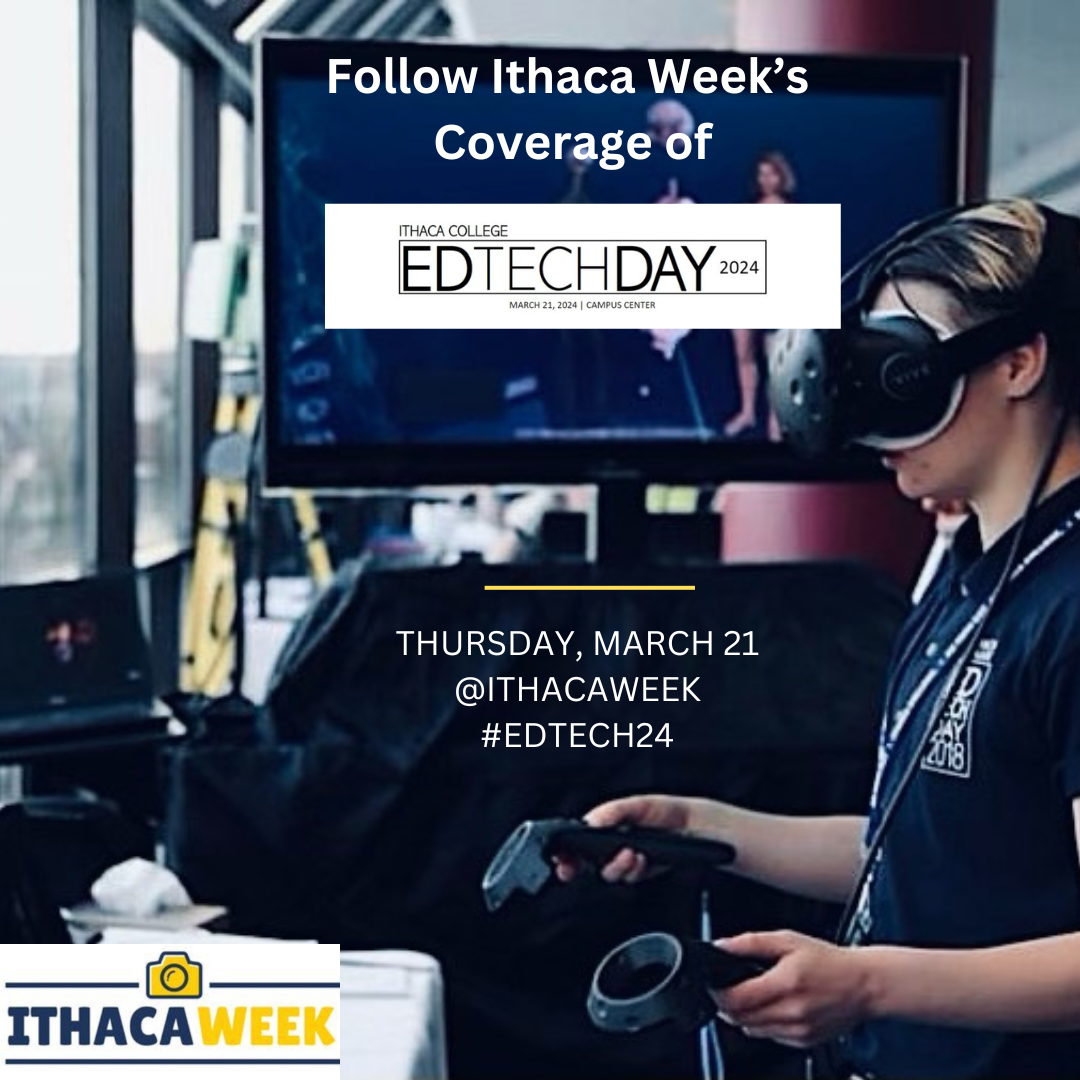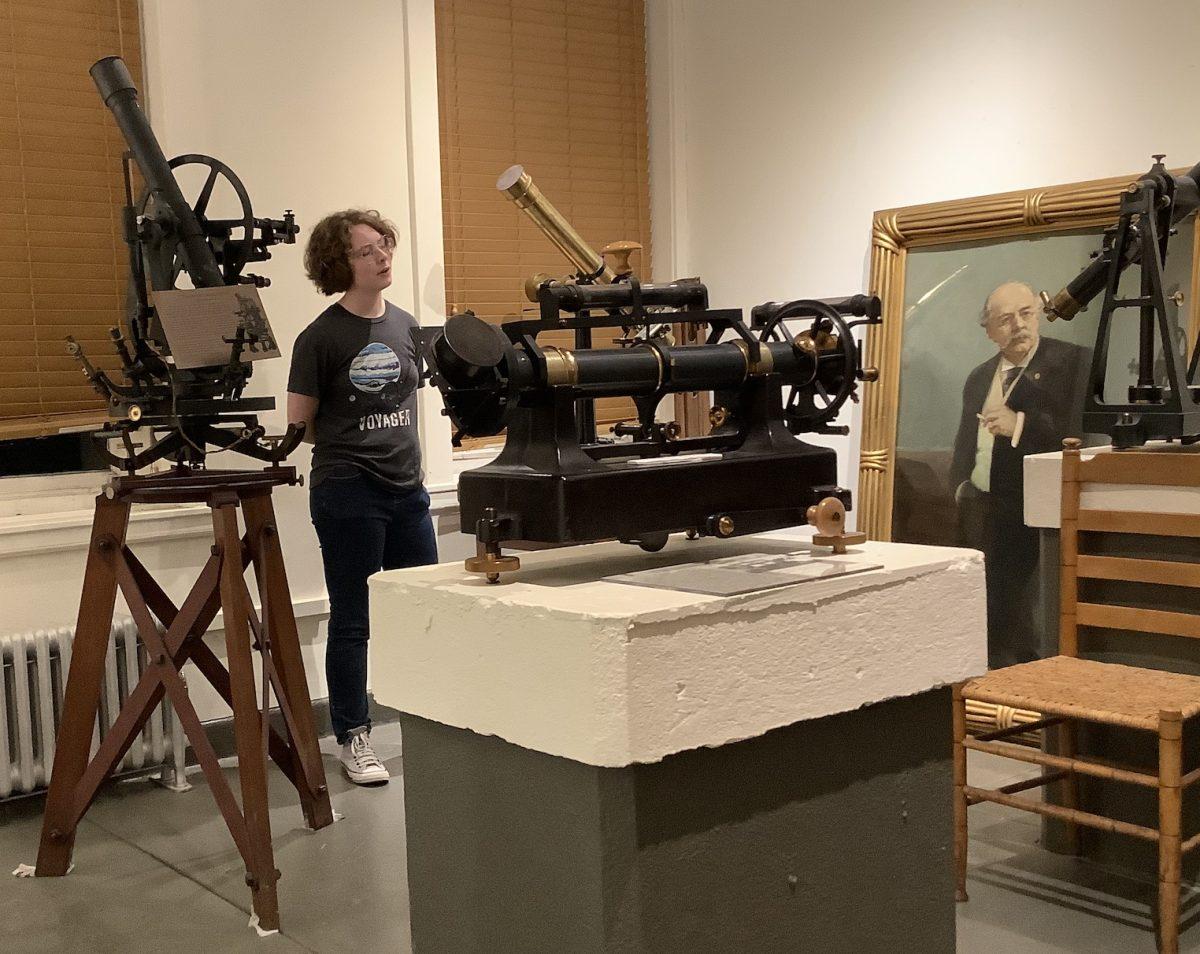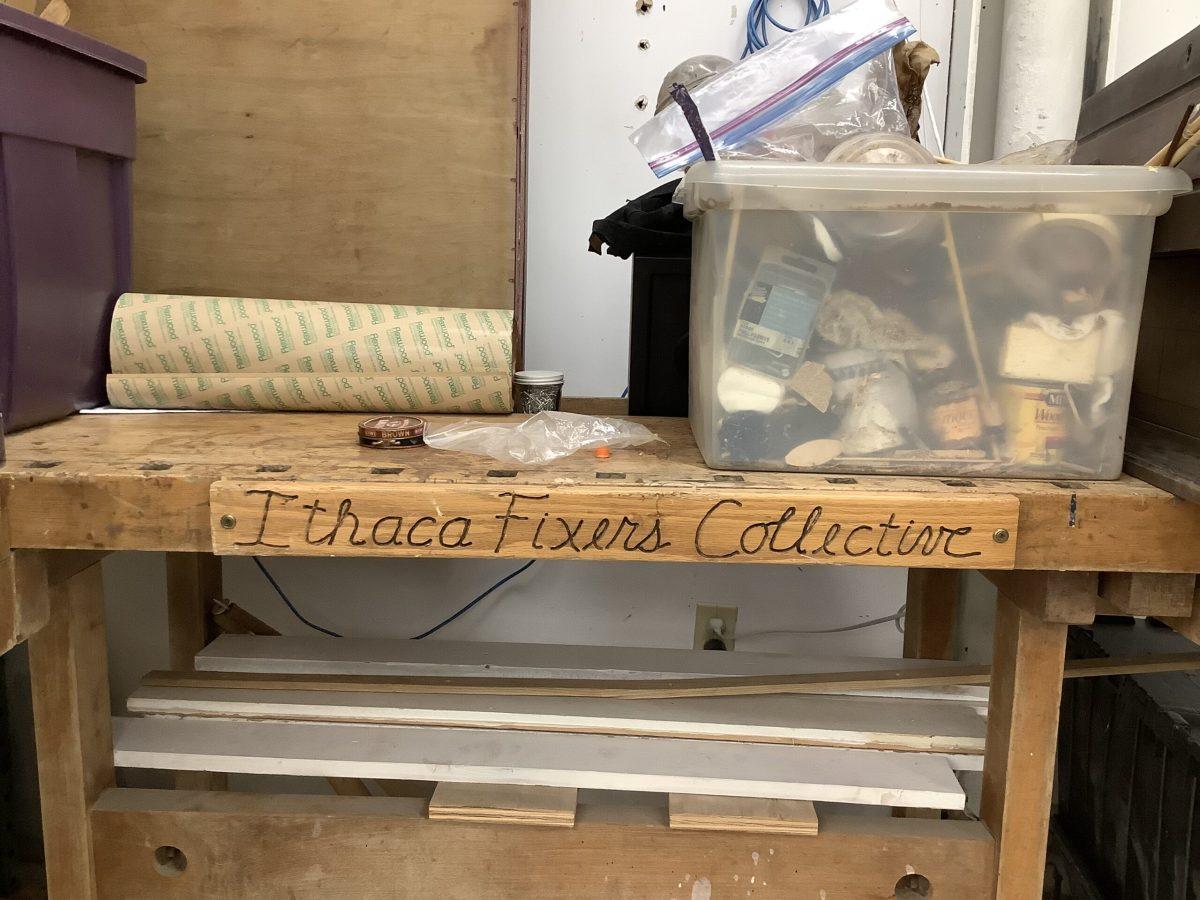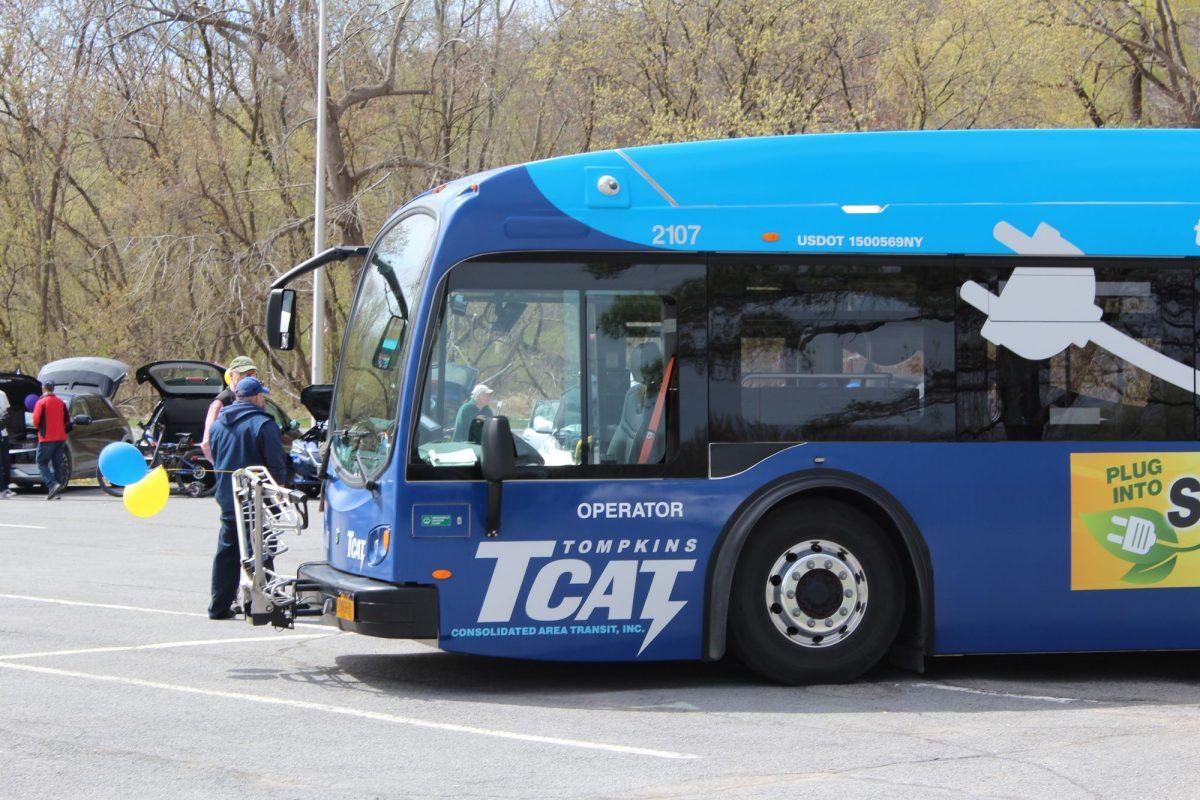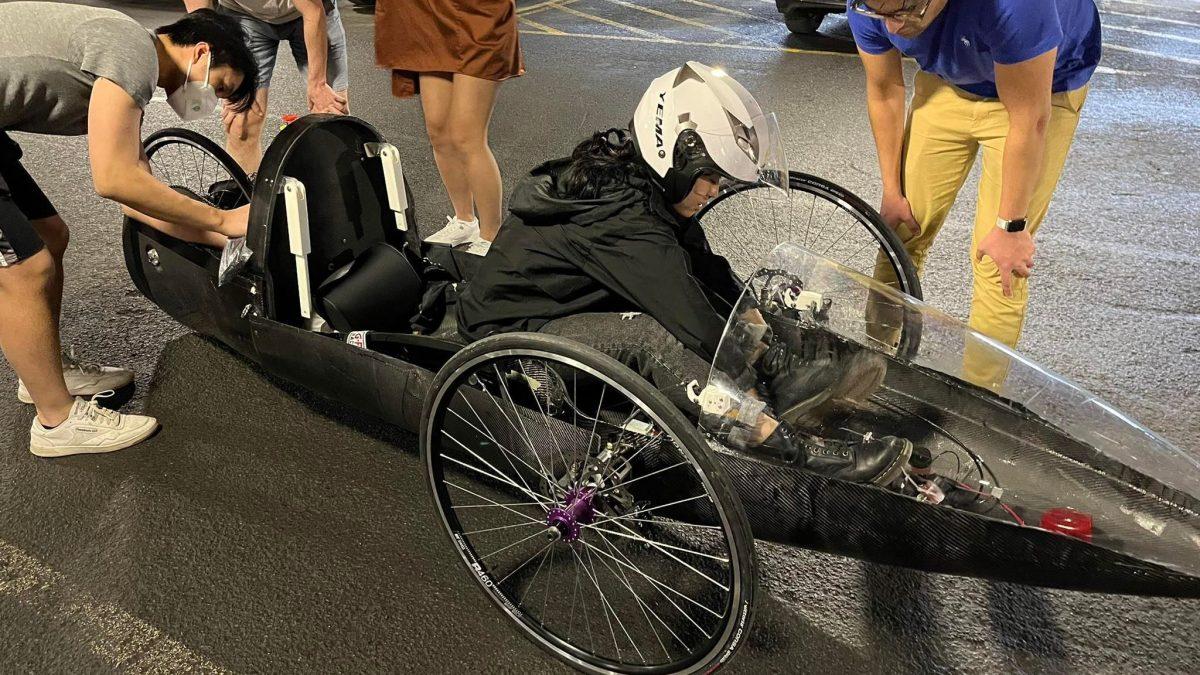Life Changing Labs, a nonprofit organization, hosted their first make-a-thon event at Cornell University this past weekend. Fourteen teams and 120 people participated in the event.
Life Changing Labs is run by a team of students from the various Cornell schools to represent the university’s diverse and creative entrepreneurial offerings, according to the organization’s website.
The LC. Make-a-thon, a day of hands-on prototype making and hacking, brought together engineer students, design students and business students to find and propose life-changing solutions using these prototyping techniques.
Michael Raspuzzi, managing director of Life Changing Labs, fifth-year architecture student and event coordinator said, “This make-a-thon is an opportunity to create by building a solution and to meet awesome people. It’s a launch pad for students to take what they’re learning in the classroom and apply it to making a physical project.”
The three-day event, from Feb. 19 to Feb. 21, began with a pre-hack welcome and prompt delivery. The objective for the make-a-thon was “Proposing Solutions for Smart Living.”
“So basically the prompt was that smart living and the smart home revolution hasn’t really panned out like we’d like it to,” said Andrew Moorman, a fifth-year architecture student and tech lead and coordinator for the event. He said the theme was inspired by discussions the group had earlier.
Moorman said the prototypes can be anything.
“This can be anything from home life, so it can be around a space, a room and activity; or it’s just your daily routine. It’s open-ended enough that everyone can pitch their own intervention into this general scenario, but it’s also a common denominator that everyone has experience with,” he said.
Moorman said one goal of this LC. Make-a-thon is cross-disciplinary interaction.
“We had a pretty great heterogeneous turnout. It’s everyone from engineering to information science and computer science, to design and even human ecology, architecture, and the arts and sciences,” Moorman said.
He said the opportunity is a really good intersection of every discipline and major across the university.
Raspuzzi discusses how the idea came to fruition and what went into putting it together.
“Last summer, Life Changing Labs hosted two programs; an incubator program for university students who are trying to fund their own venture and the high school program that combined computer science entrepreneurship and design,” he said.
Raspuzzi said the idea of make-a-thon was to figure out how to condense that into a weekend that would give students the opportunity to work on these kinds of projects.
“I applied for a community funding grant last semester to get this whole thing started. We assembled a team. We have six amazing Cornell students who have helped get the event up and running and then 15 mentors: local, professional, professors, masters students all helping all of these student teams,” he explained about the preparation for the event.
Participants are provided with all the hardware and technology they need.
On Saturday, Feb. 20, participants had four hack and build events. Jimmy Chen, a freshman computer science major in the College of Engineering explained his group’s prototype.
“What we really wanted to make here was, we wanted to make something that would change the world. The point of this make-a-thon is to create a product that addresses a large audience, and can also be easily marketable and pay for itself in the long run,” he said.
The group’s prototype was an in-home smart-light system that controls lights using a motor in order to curb electricity costs, which Chen said accounts for about three percent of spending in the United States.
“We’re going to have light sensors set up both on the outside of the house and the inside. So what’s going to happen is there is going to be a motor that will be connected to the blinds of your house. We’ll also have something that connects to your light fixtures and dims or brightens them. So, we’re going to detect the light coming from the outside, as well as the inside, and depending on, your house will brighten accordingly,” he said.
Chen estimates his project would probably end up costing about one hundred dollars to install in the house, but he noted that over the course of three or four months, that money could be saved.
“So we think this idea really has potential for large-scale use,” he said.
The most recent event on Feb. 21 had the top five university and top five high school student teams presenting their projects as pitches to the panel of judges, professionals and local alumni. Each pitch lasted three to six minutes.

